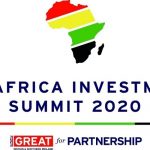Lucy Quist shared her thoughts and experience on how to successfully build and operate businesses in Africa during an interview on BBC News Africa hosted by the BBC’s Akwasi Sarpong.
The duo discussed a number of topics including factors to consider when moving to do business on the continent, spotting opportunities and overcoming challenges as well as the role of Science, Technology, Engineering and Mathematics (STEM) in Africa’s business development.
The Local Context
According to international business leader, Lucy Quist, it is crucial that businesses operate models that factor in the local contexts of their various locations within Africa. The continent sees a number of copy and paste business models that fail to provide relevant solutions to its people.
“Africa today presents the greatest long-term business opportunities anywhere in the world because we have a massive burgeoning population which will continue to grow. These people are going to need goods and services. That presents opportunities but I think the key is, are we creating business models and solutions that are relevant to Africa or are we copying and pasting without adaptation?
Copying and pasting without the contextual knowledge wouldn’t yield business models that are actually relevant to everyday people’s lives in the continent.”
Global Standards must meet Culture
Lucy Quist, who has a decade worth of experience leading businesses across the continent, mentioned a number of key factors both local and foreign entrepreneurs, as well as business executives need to consider before starting businesses in Africa. She explained that acquiring contextual knowledge was necessary to enable businesses to appreciate not only the needs of the people, but also the cultural settings in which they operate.
“If we take a step back to understand why people do things the way they do we’ll be able to find ways to adjust or we will be able to engage them and help them evolve in the way they do things. So contextual knowledge is extremely important.
Every business has certain global metrics and standards that it works towards achieving; productivity, return on investment, profitability etc. To be able to take people along with you to achieve these you need to be able to understand their culture and build on it for your strategic business operations.”
Separating Facts from Fiction
She also stressed on the issue of separating facts from fiction before coming to do business in Africa. By looking at the real figures on growth, access and real trends business people will be able to get a true picture of the challenges and opportunities available in various parts of the continent instead of making blanket assumptions that may not be factual.
Dealing with Challenges
On the challenge of currency fluctuation, Lucy Quist suggested relying on local inputs as a way of reducing the impact on external currency shocks on their business.
“Most of the what happens is that we end up with businesses that are very dependent on inputs from outside of the countries we are operating in so currency fluctuations have a big hit on our business. Why don’t we try and find and nurture local ventures and local suppliers so that we keep our spend within the economy? It doesn’t eliminate all the currency risk, it just reduces it for us and helps us manage it better.
We are creating many business models that are entirely based on importing things now. How about looking at models that rely on local ecosystems?”
Scaling Up
Lucy Quist shared that many entrepreneurship ventures in Africa are small scale and exist at a subsistence level. The continent however needs big entrepreneurs that drive business economically on a large scale.
“Scaling up a business requires not only money but more importantly the right structures. In order to scale up there needs to be the right governance, processes, the right business models. Get those sorted and you are more likely to find the money because people will be able to look into your books and identify the business potential.”
The STEM advocate also shared strong opinions on why Africa needs to develop its young in the fields Science, Technology, Engineering and Mathematics even for the benefit of business on the continent.
“STEM provides the systems thinking that business leaders need to apply to make their businesses functionally, strategically and operationally successful. We need to create more innovators, more systemic thinkers, more problem solvers and that is why I encourage young people to participate in STEM. Some may not become STEM professionals but the thinking they get from STEM is going to influence the way they manage businesses and view the world. Their approach to problems is going to change because they will be able to analyse things systemically and work to make an impact on a larger scale.”
Watch the full interview here:
Watch again:Do you do business in Africa and want advice on how to nurture it? We talk to Lucy Quist – President of the African Institute of Mathematical Sciences in Ghana and co-founder of Fresh Bakery, the parent company of the FreshPay payment platform in the Democratic Republic of Congo.
Publiée par BBC News Africa sur Samedi 2 juin 2018







